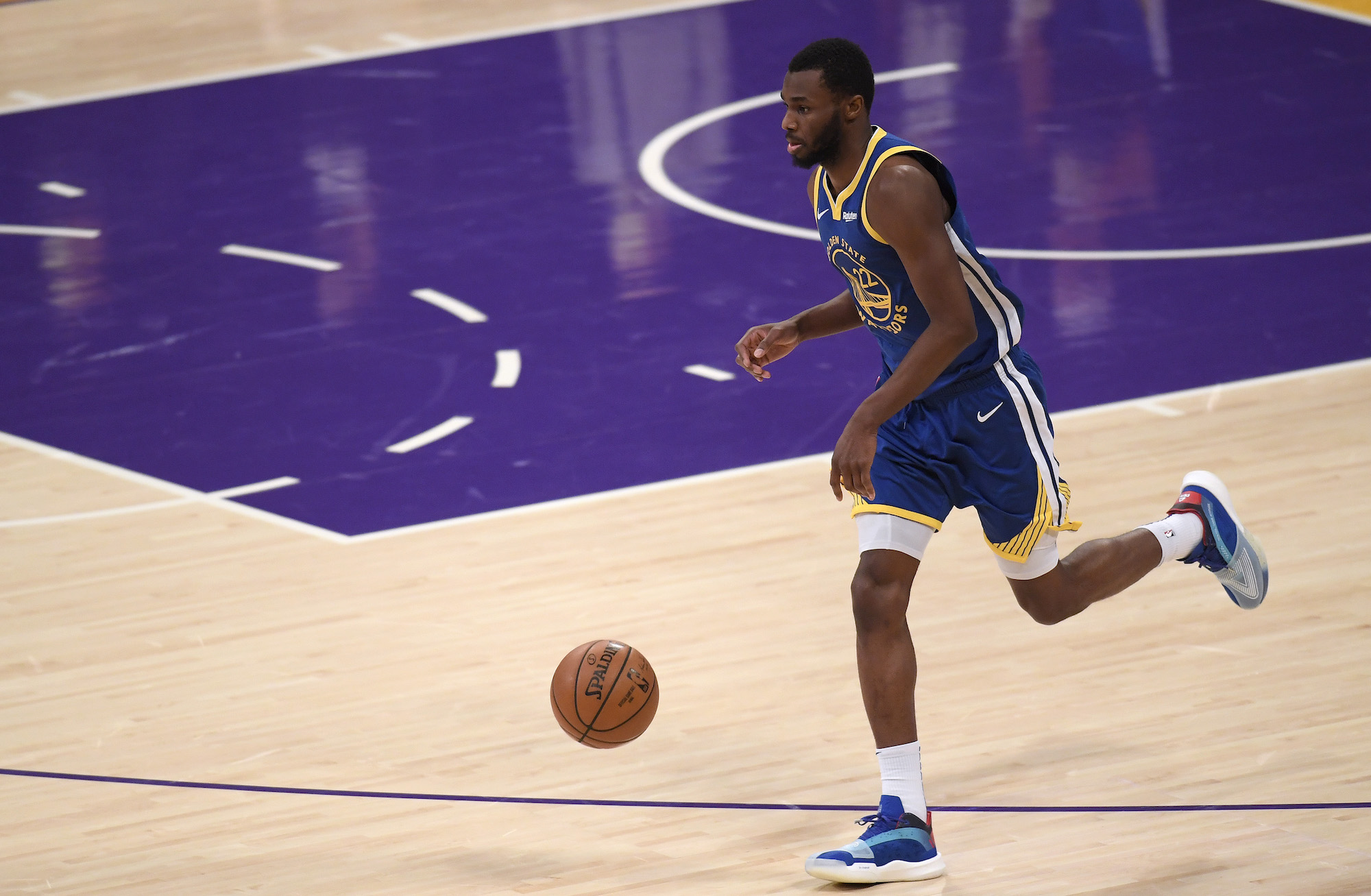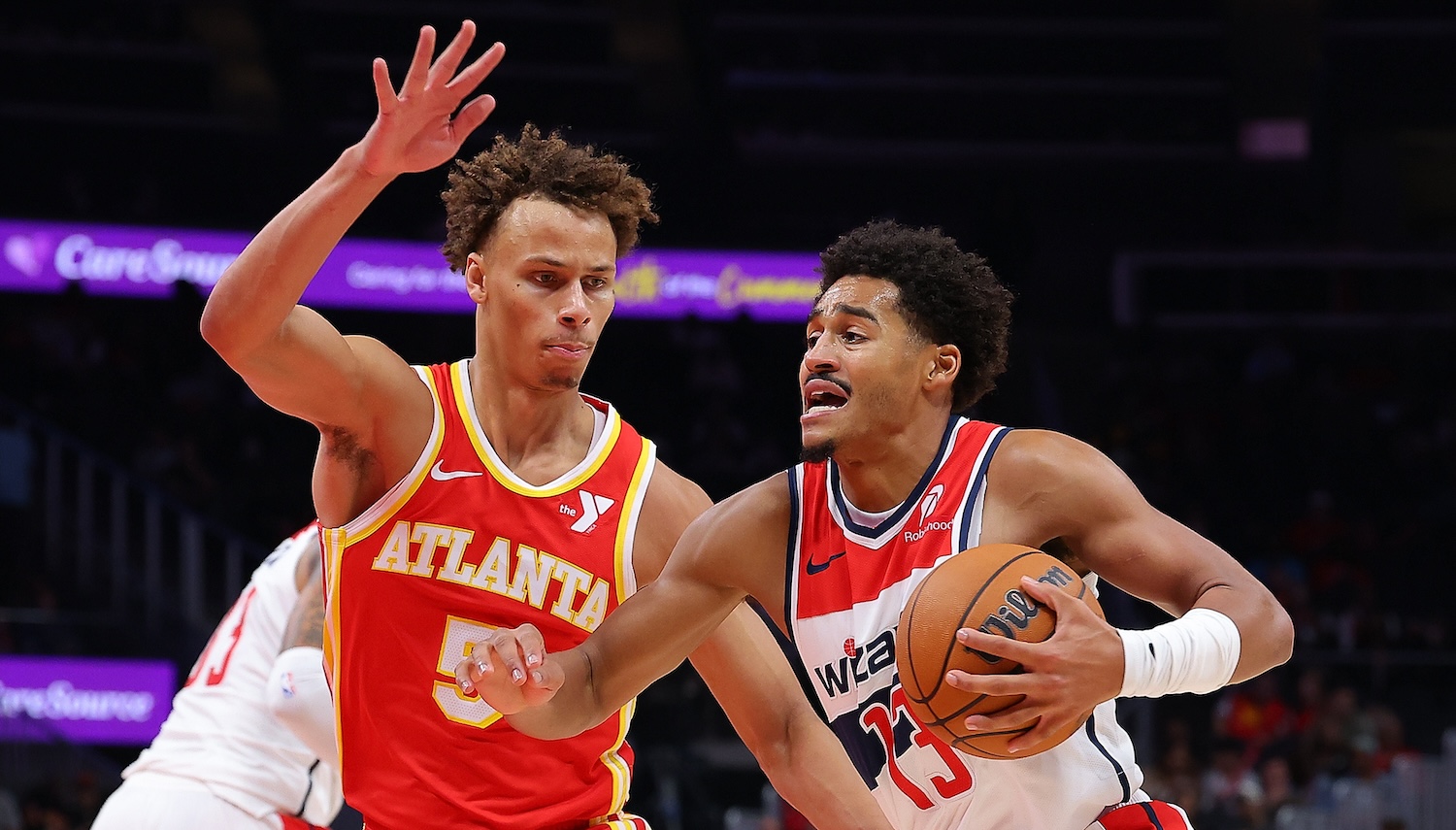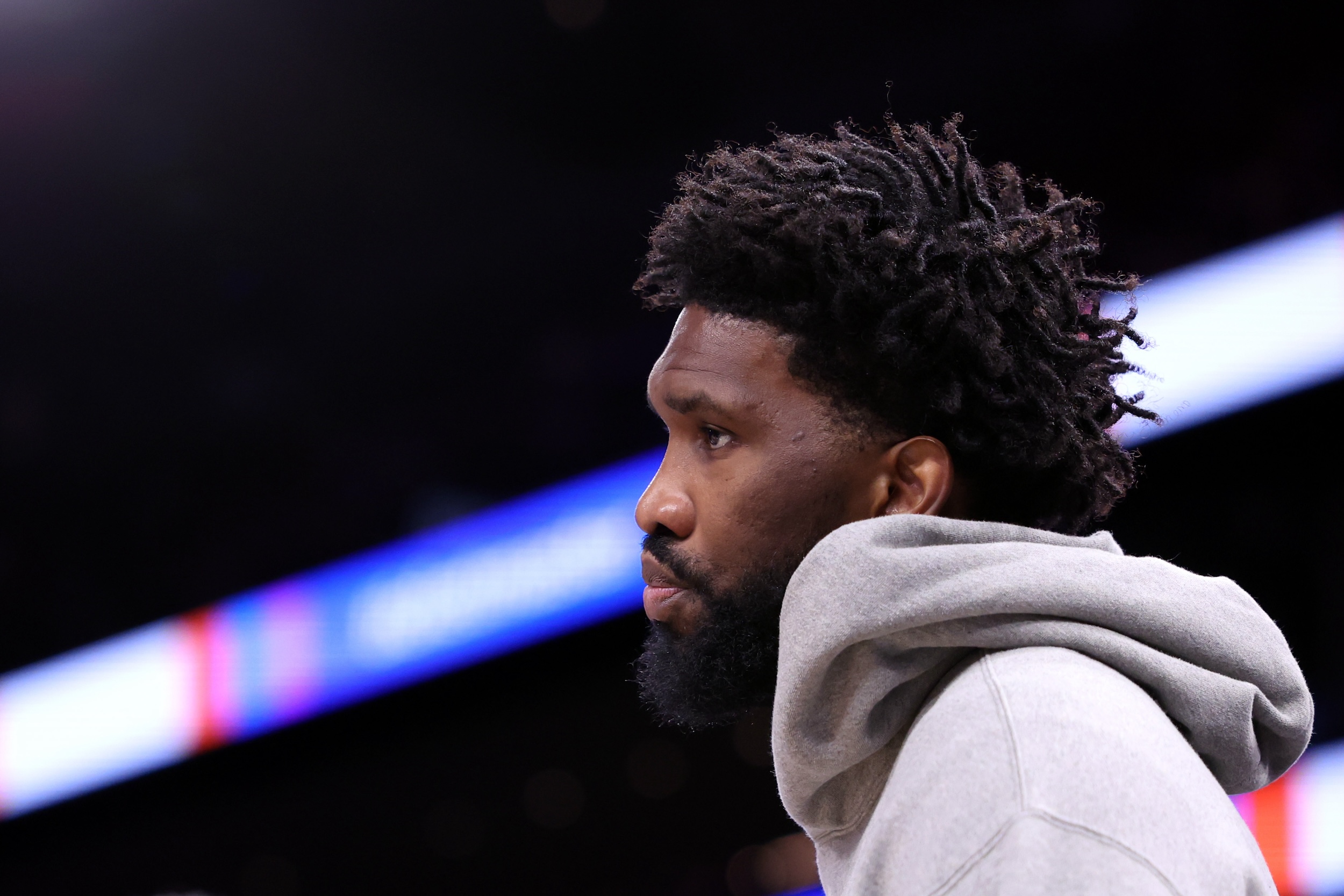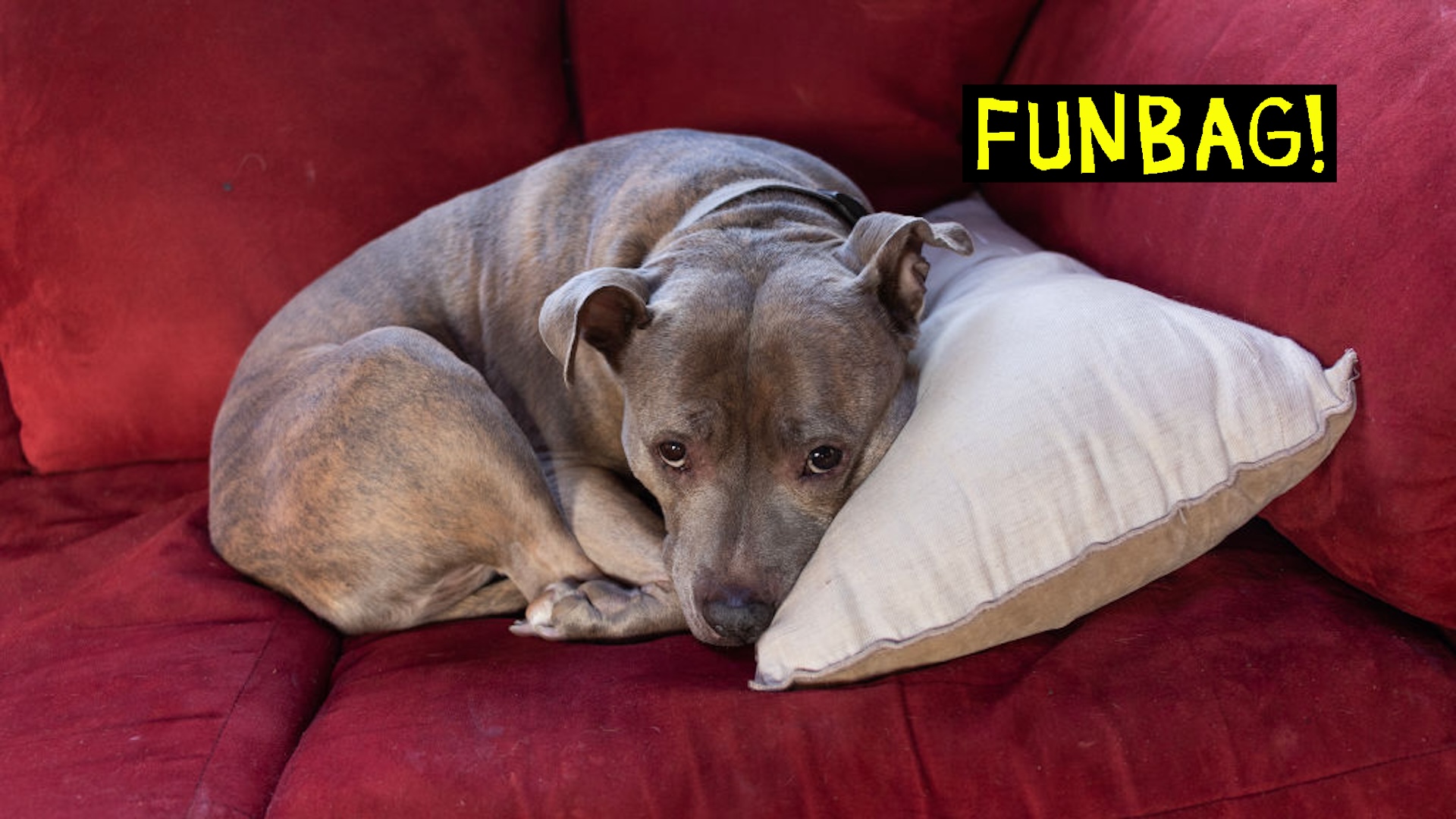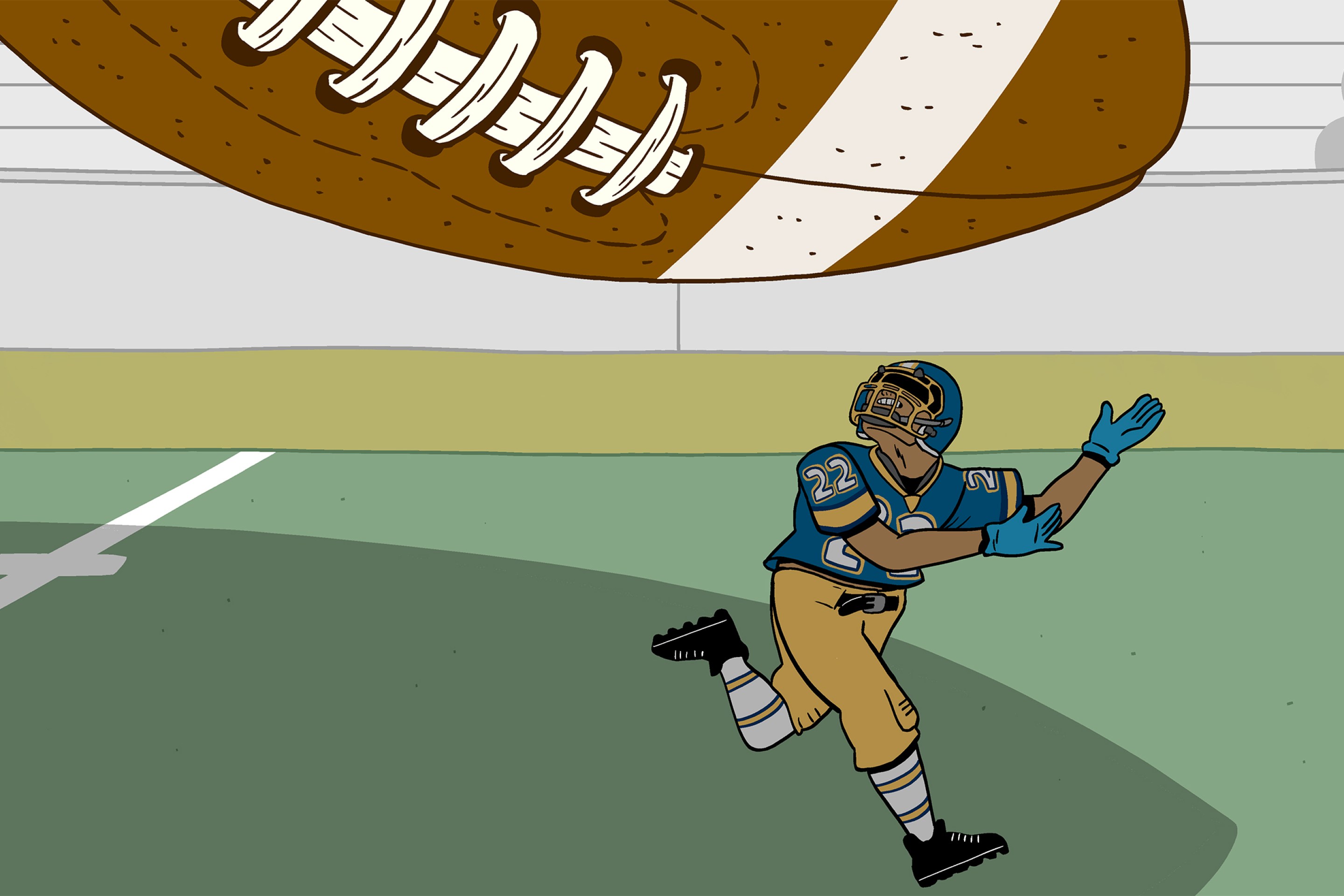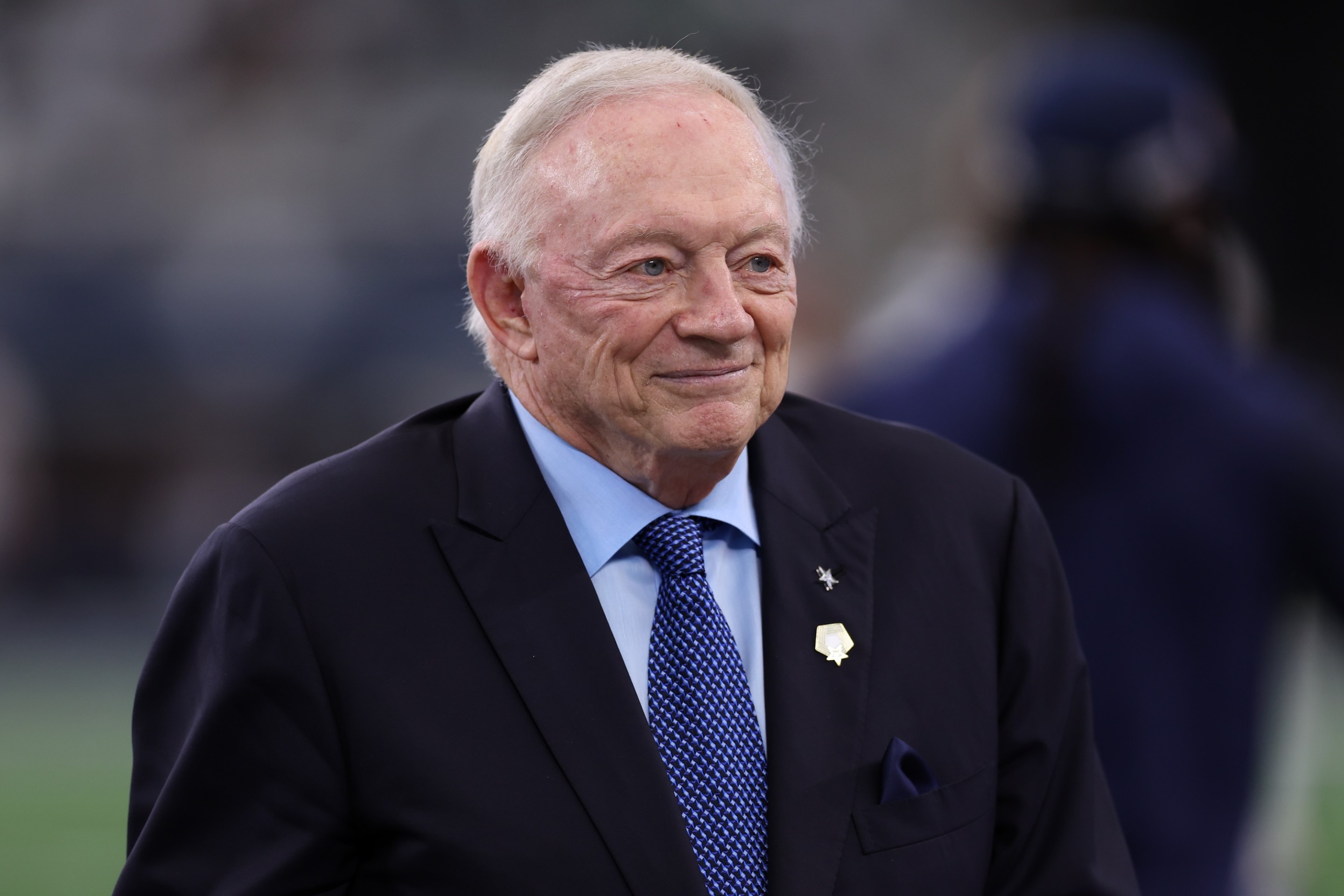Andrew Wiggins was declared a bust as early as the fourth year of his career, largely because he didn't make the Minnesota Timberwolves less Timberwolfy. He was drafted first in 2014, ahead of such future lights as Joel Embiid, Marcus Smart, Julius Randle, Zach LaVine, Jusuf Nurkic, Clint Capela, Bogdan Bogdanovic, and most amazingly, Nikola Jokic in the 41-spot. He was getting the much beloved Flip Saunders as his coach from a team that had gone 40-42 the year before, so he was certainly sufficiently regarded as the path forward for Puppy Nation.
Instead, he was the only one to start more than 50 games on a team that went 16-66, then they drafted Karl-Anthony Towns to make the team better. But then Saunders died, the team foundered even more, then rallied for a year in 2018 with the introduction of Jimmy Butler, who loved Minnesota so much that he agitated his way to Philadelphia 10 games into the 2019 season, and the Wolves re-entered Lousytown.
Wiggins, whose raw counting stats were adequate, was singled out as a major problem—inconsistent, intermittently focused, defensively disinterested, and in no way the kind of game-changer the Minnesotas thought they were getting. He wasn't the out-and-out mistake Anthony Bennett was the year before, but he was generally agreed to be the vice-worst No. 1 of the decade. By the time he was traded to Golden State for D'Angelo Russell in a trade most people saw as nothing but another, future trade in the making, his on-court baggage was crushing, and in the Warriors' 2019–20 season, he was hailed as the team's largest liability other than the trainers' table. A bust by most measures, as applied by people who enjoy thinking in such terms.
And now? He is being deemed very useful indeed, which is an upgrade from decent if you don't have any expectations. There is no metric for interest, but he takes almost no possessions off, and his reputation for on-ball defense has risen considerably. Out of everyone who has defended 175 shot attempts or more, his 40 percent on defended field goals leads the league, and he has been more aggressive and successful defending threes (fifth overall, with the shooters hitting only 30 percent), and his defensive box plus/minus is the best of his career.
He isn't the Warriors' game-changer; they have Stephen Curry, Draymond Green and, to a lesser extent the embryonic James Wiseman for that. And the Warriors at 7-6 are about where people thought they would be: tied for seventh in the West, a fringe playoff team. But Wiggins is no longer a topic of discussion as a reason why his team isn't better, and the chat about packaging him in a trade has dwindled to nothing. Steve Kerr routinely raves about him whether he is asked or not. He is making a difference on a middle-of-the-pack team with no margin for error.
So based on 13 games in which he has been of positive benefit to the Warriors in 11, is he starting the process of unbusting? Is the apparent stain of having been traded by the team that drafted him before ever playing a game for said team (Cleveland, which moved him in a package that included Bennett to get Kevin Love, whom LeBron James craved)? Is his lofty buildup (called the next LeBron early on by some certified fools and then winning Rookie of the Year) and slow start going to be held against him forever, or are the Warriors figuring him out as he figures them out?
Well, that's a notion. As we listed, he is still the second worst-regarded pick of the 2010s, and according to BasketballReference.com's win shares, he rates 55th among first-overall picks, between Fred Hetzel and the gloriously named Velvet James (Bad News) Barnes. And how far up on a list of 74 people do you have to rise before you are no longer a bust?
One impediment to analysis is that he still has at least another seven or eight years of service left in him. I mean, even Kwame Brown played 12 years. A second problem is how being traded so quickly (allegedly in part because he didn't sign with LeBron's agent, Rich Paul) and to a team that turned to dust so quickly played with his brainpan. And a third is that 13 games tells us little when all it represents is under three percent of his career. If he was a bust before this, and he might be harshly graded here in some ways, he probably still is.
But for one of the rare times in his career, he has made a visible difference on a team that isn't decidedly awful. Right now, the Warriors are decidedly average after a year of being decidedly awful, and Wiggins's improvement has matched the team's as a whole. He could end up being a consistently impactful player yet, with a meaningful career amidst the class of 74 players to which he belongs. Maybe he can actually change a pundit's mind, although pundits are far less reliable as a group, and some are impressively dim. If that's the audience Andrew Wiggins is playing to, good luck to him. He could use some.
